External links
- Full text from the Internet Archive
| Author | Juliet Schor |
|---|---|
| Subject | American consumerism |
| Publisher | Basic Books |
Publication date | 1998 |
| Pages | 241 |
The Overspent American: Upscaling, Downshifting, and the New Consumer is a 1998 book by Juliet Schor on American consumer spending patterns.

Michael Albert is an American economist, speaker, writer, and political critic. Since the late 1970s, he has published books, articles, and other contributions on a wide array of subjects. He has also set up his own media outfits, magazines, and podcasts. He is known for helping to develop the socioeconomic theory of participatory economics.
In social behavior, downshifting is a trend where individuals adopt simpler lives from what critics call the "rat race".

A Veblen good is a type of luxury good for which the demand increases as the price increases, in apparent contradiction of the law of demand, resulting in an upward-sloping demand curve. The higher prices of Veblen goods may make them desirable as a status symbol in the practices of conspicuous consumption and conspicuous leisure. A product may be a Veblen good because it is a positional good, something few others can own.
The NCTE George Orwell Award for Distinguished Contribution to Honesty and Clarity in Public Language is an award given since 1975 by the Public Language Award Committee of the National Council of Teachers of English. It is awarded annually to "writers who have made outstanding contributions to the critical analysis of public discourse."

Juliet B. Schor is an American economist and Sociology Professor at Boston College. She has studied trends in working time, consumerism, the relationship between work and family, women's issues and economic inequality, and concerns about climate change in the environment. From 2010 to 2017, she studied the sharing economy under a large research project funded by the MacArthur Foundation. She is currently working on a project titled "The Algorithmic Workplace" with a grant from the National Science Foundation.

Country of My Skull is a 1998 nonfiction book by Antjie Krog about the South African Truth and Reconciliation Commission (TRC). It is based on Krog's experience as a radio reporter, covering the Commission from 1996 to 1998 for the South African Broadcasting Corporation. The book explores the successes and failures of the Commission, the effects of the proceedings on her personally, and the possibility of genuine reconciliation in post-Apartheid South Africa.

Anti-consumerism is a sociopolitical ideology that is opposed to consumerism, the continual buying and consuming of material possessions. Anti-consumerism is concerned with the private actions of business corporations in pursuit of financial and economic goals at the expense of the public welfare, especially in matters of environmental protection, social stratification, and ethics in the governing of a society. In politics, anti-consumerism overlaps with environmental activism, anti-globalization, and animal-rights activism; moreover, a conceptual variation of anti-consumerism is post-consumerism, living in a material way that transcends consumerism.
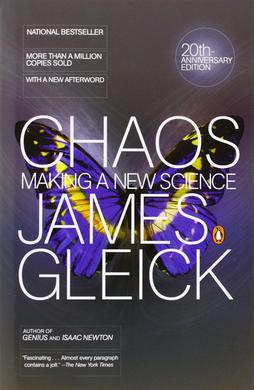
Chaos: Making a New Science is a debut non-fiction book by James Gleick that initially introduced the principles and early development of the chaos theory to the public. It was a finalist for the National Book Award and the Pulitzer Prize in 1987, and was shortlisted for the Science Book Prize in 1989. The book was published on October 29, 1987 by Viking Books.
Barbara Rose Bergmann was a feminist economist. Her work covers many topics from childcare and gender issues to poverty and Social Security. Bergmann was a co-founder and president of the International Association for Feminist Economics, a trustee of the Economists for Peace and Security, and Professor Emerita of Economics at the University of Maryland and American University.
The Diderot Effect is a phenomenon that occurs when acquiring a new possession leads to a spiral of consumption that results in the acquisition of even more possessions. In other words, it means that buying something new can cause a chain reaction of buying more and more things because the new item makes one feel like one needs other things to go with it or to keep up with it. This can lead to overspending and accumulating more possessions than one actually needs or uses. The term was coined by anthropologist and scholar of consumption patterns Grant McCracken in 1988, and is named after the French philosopher Denis Diderot (1713–1784), who first described the effect in an essay.
Lawrence B. Glickman is an American history professor and author or editor of four books and several articles on consumerism. He has taught at Cornell University since 2014, where he is Stephen and Evalyn Milman Professor in American Studies. Previously he taught at the University of South Carolina. Glickman earned a Princeton University B.A. in history magna cum laude in 1985, a M.A. in 1989 and his Ph.D. in 1992 both from University of California, Berkeley. He has written three books, A Living Wage: American Workers and the Making of Consumer Society, Buying Power: A History of Consumer Activism in America, and Free Enterprise: An American History.
Neo-Marxism is a Marxist school of thought originating from 20th-century approaches to amend or extend Marxism and Marxist theory, typically by incorporating elements from other intellectual traditions such as critical theory, psychoanalysis, or existentialism. Neo-Marxism comes under the broader framework of the New Left. In a sociological sense, neo-Marxism adds Max Weber's broader understanding of social inequality, such as status and power, to Marxist philosophy.
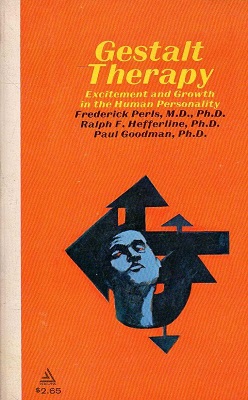
Gestalt Therapy is a 1951 book that outlines an extension to psychotherapy, known as gestalt therapy, written by Frederick Perls, Ralph Hefferline, and Paul Goodman. Presented in two parts, the first introduces psychotherapeutic self-help exercises, and the second presents a theory of personality development and growth.

Suzi Gablik was an American visual artist, author, art critic, and professor of art history and art criticism. She lived in Blacksburg, Virginia.
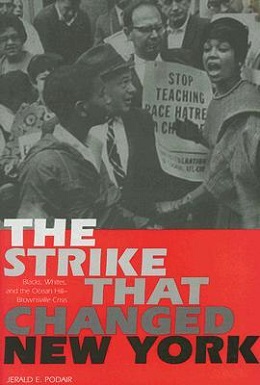
The Strike That Changed New York is a history book about the New York City teachers' strike of 1968 written by Jerald Podair and published by the Yale University Press in 2004.
Eric D. Weitz was a professor of history at City University of New York, and the author of several books.
Elizabeth Weed is an American feminist scholar, editor and university administrator. She is the cofounder and, from 2000 to 2010, director of the Pembroke Center for Teaching and Research on Women, as well as the feminist studies journal differences, cofounded in 1989 with Naomi Schor.
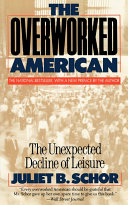
The Overworked American: The Unexpected Decline of Leisure is a 1992 book by labor economist Juliet Schor on the increase of American working hours in the late 20th century.
Born to Buy: The Commercialized Child and the New Consumer Culture is a 2004 book by Juliet Schor on consumerist targeting of children.
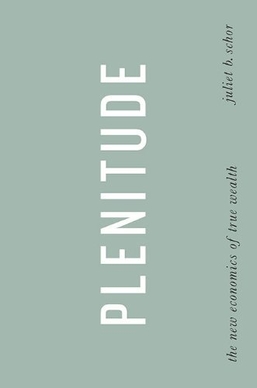
True Wealth: How and Why Millions of Americans are Creating a Time-Rich, Ecologically Light, Small-Scale, High-Satisfaction Economy is a 2010 book by Juliet Schor that argues for a redefinition of wealth based on allocation of free time, making things for oneself, environmentally-aware consumption, and stronger social connections.